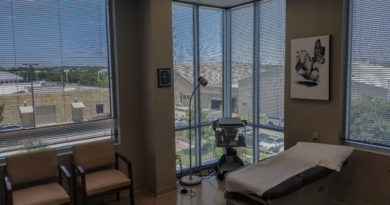Why Doctors Stay Employees Rather Than Owners
In 1980, almost 80% of physicians owned their practice or were partners in their practice and effectively co-owners. In 2016, that number dropped to almost 45%. Each year, it seems that another 3-5% of doctors choose to become employees rather than owners in their practice. The trend away from physician ownership in practices is quite disturbing. Without ownership, we are at the mercy of administrators or other physicians telling us how we are going to practice medicine (to a certain degree).
Owning your own practice is not for everyone. I’ve started my own practice, and although it was rewarding, it sure has had its struggles. I do believe those that becoming an owner in a good group is key to financial success later in life.
Almost every doctor should strive to become a partner or owner in their practice. Without having ownership, you are constantly at the mercy of your group with little say in how the group changes over time.
Insurance Companies Make It Difficult
Those of you who have been reading my journey about starting up my own practice know I love to complain about Aetna. They took 9 months to get me in their network, and recouped about $30,000 in claims from me.
Insurance companies have made such a huge barrier to join them, that many doctors can not take the financial risk of trying to go all in and get in network on their own. While waiting to be in network, a doctor has to rent a space, and then applying for in network status with insurance companies. All the while, paying rent and overhead for a practice that is not in network with insurance companies.
They make it difficult and that is most likely for a reason. To delay payment in the hope that the doctor will most likely eat some payments as out of network claims that patients will most likely never pay.
I’ve been credentialed at 9 other locations or groups with insurance companies. I have passed numerous exams, I am board certified, yet every time I practice at a new address or open my own practice, I have to start the process all over it seems.
Even when I went from just me practicing medicine to another doctor practicing medicine with me in my practice, my contracts had to change. I was no longer a contract as a solo provider. I had to re-write all my contracts as a medical group. This took time and delayed the start date of the physician joining me.
Insurance companies make it difficult to go out and start a new practice. The headache of hours on the phone with insurance companies is a huge barrier during credentialing to put many doctors off from taking the leap.
Surprisingly, Medicare was the easiest for me to join and easiest for me to add another provider. They also were the only payer that back dated claims to my application date rather than only approving claims after the approval date.
Student Debt

The average physician now graduates with around $250k in student loans. Many of my friends have around half of a million dollars in student debt.
For these physicians with student loans, it is a hard sell to tell them to risk everything to start-up a new practice while they still have rent/mortgage to pay, living expenses, and a huge student debt payment.
For students who have student loans, it makes it near impossible to start-up your own practice right out of training. Very few brave individuals will do locums shifts to pay the bills until the business is up and running. However, for many with families it is hard to do to fly to another city or state and work there while also trying to set up a new business.
Student debt will be one of the greatest threats to entrepreneurship or business ownership for physicians.
Local Monopolies Around
In some cities, the market for many doctors is saturated. For example, in the city where I currently live, there is one massive GI group, one massive urology group, and one massive orthopedic group. Yes, there are other small groups but they hardly see probably 10% of all the other patients in town.
While other groups do exist, the large group often times will make it very difficult to get hospital call shifts, or break into the market for solo or small practices. Many times these groups have quite a bit of power and much more money to advertise online. They can potentially have the manpower to take all the hospital GI call and leave a small group scrambling for just a few nights of call at the large hospitals. A surgical group may monopolize all the OR time leaving independent surgeons or smaller groups having a harder time getting the time spots they want.
These groups also usually have stiff non competes. When those doctors who were with the large monopolies leave these groups, they find themselves basically unable to practice medicine in the city and forced to move.
Local monopolies make it very difficult to break into new markets and daunting to set up a new practice in one of these saturated cities.
Doctors Stay Employees And Give Up Administrative Tasks
Doctors are also complicit in this trend away from physician owned practices and not just the victims. In my opinion, the average physician seems to want nothing to do with the administrative side of medicine and wants to only practice medicine. We have given up our seats at the decision table in an effort to provide patient care.
What we did not realize in doing so, was that MBA’s who have never practiced medicine were happy to step in and find ways to increase productivity. Words like “throughput” and “patient satisfaction” have become some of the most important metrics.
We have lost sight on the fact that providing patient care means sitting at the administrator table from time to time to talk about policies that affect patient care or physician well-being.
We need to step back up into these roles and have another say in how medicine is practiced.





Great post. I’ve experienced 1st hand the barriers that the insurance companies place on becoming credentialed. I’ve been in independent private practice for 4 months and have been rejected from 8 major insurers with the exception of only Medicare after over 6 months of back and fourths with the insurance companies. I’ve even reached out to my state medical specialty association regarding this who agree that it’s been a major barrier towards physician independence.
Wow, I’m definitely not surprised that you have had such a hard time dealing with insurance companies. They make it very difficult on purpose and want to delay putting you in network in the hope that you will see some of their patients out of network and just eat the cost.
So true. At this point, physicians are also afraid to “get out” because the environment is so driven by hospitals in my area. As a hospital or large group practice(which seems on the surface to be free-standing but is not), the physicians who join think they are getting better reimbursements because these large organizations do get better reimbursements from the insurance companies. A known fact. What they don’t truly realize is they are not getting those higher reimbursement rates delivered to their pockets. They are not ultimately doing any better. Initially, these physicians are being offered better salaries and then, they are cut and the productivity/incentive cycle gets crazy. Its hard to get out at that point when they have abandoned their personal insurance agreements, offices, etc I believe there are also many physicians who are being offered free tuition for their children at the hospitals’ universities which can assuage a lot of their unhappiness.
I started out in a big multi-specialty practice in 1995. In 2006, I went off on my own. Insurance companies make it so difficult and unfair and there are so many different reimbursement rates for the same services depending on who you are and what organization you are in.
As a single gastroenterology practitioner, my reimbursement rates are lower. A few years ago, I looked at different organizations because I was afraid at what was happening. I decided to stay by myself. I can look at my lower reimbursements and know I am still doing well. I don’t have to answer to the demands of “productivity” so I can fill the coffers of these administrations who don’t care about patients and people. Doctors coming out are too afraid to join me because the stage has been set for them to not know any other way. Doctors are afraid because they drank too much of the Koolaid that has poisoned our environments.
My practice runs efficiently and I maintain whatever quality points are demanded of me. I am getting older and I don’t want to see 30 patients a day. I am doing well and am confident I can retire on my terms when I am ready(at least another 10+ years). I am so saddened at what is happening. Doctors have given up their rights to steer medicine! I am afraid for my well-being when I get older. There are so many superfluous people involved in the practice of medicine that no one is really paying attention. Hospitals are so afraid, and rightly so, of law suits that are outrageous and this adds another piece to the demands that move away from actual, logical patient care.
Doctors need to know how, although demanding, they can come together and run their own practices! We should band together and run lectures on re-taking control and how to do it!
I have found it to be similar with your experience.
I run my practice efficiently and all the promise of a higher RVU rate only goes to admin with large groups. It never went back into my pocket.
why would insurance companies facilitate the independent work of mds? aren’t mds a less expensive and better controlled resource for these companies when they are employed by hospitals which they are already paying to…?
Although it is true that there are many barriers, at the same time physicians have many opportunities that may not be exploited properly. After all, in many specialties, such as neurology, there is an enormous demand for our services. Yet, many neurologists do not take advantage of this. If one’s waiting list is four weeks or more, the easiest thing to do is just start threatening to drop your worst payers. Telemedicine in some fields can be very lucrative with almost no expense. And of course there’s always the option to move to a location that is not saturated, such as a smaller town or a rural area. Don’t sell yourself short!
Great article, taking me back to my Internal Medicine practice of 40 years. Because of the numerous reasons noted in the article, I actually prepared to quit private practice about 35 years into my career. 3,000 patients, ever-expanding, continuous billing rejections, denials, and code authorization alterations in the (then) ICD-9 morass, less time to see each patient, more time and earnings lost to the billing clerks who were mandatory to get anything through the labyrinth, the same story we hear today over and over again. And then, on one remarkable day, I initiated a wholesale elimination of ALL billing systems, ALL Medicare, ALL insurance companies, ALL coding of exams and procedures, and quit the ever-expanding practice that allowed diminishing time for each patient by sending out thousands of goodby letters with offers to help relocate physician care. For a brief time, I actually had zero patients until I sent out 300 letters to the nicest people in my practice (some rich, some just getting along, some healthy, and many with chronic illnesses) inviting them to join my “new” practice for $2,000 per year, fixed for their lifetime, with the best possible care I could provide in the hospital, with housecalls, in my office with complete exams, treadmills, same-day appointments, 24 hour immediate telephone coverage, etc., etc. Within 3 weeks, 95% of those invited joined, and for the next 15 years until retirement in 2015, I had a “full” practice (300 patients), and was able to really take care of them as a Board Certified physician, in the manner I had been taught at UCLA many years ago. How did I manage the renewal requests each year? Done with personalized reminder letters, kept track of via Microsoft Word.
Loved it, the care now taken over by Chris Thrash, M.D. who purchased the practice and who provides outstanding care for those good people, many of whom who said yes to my inquiry 20 years ago.